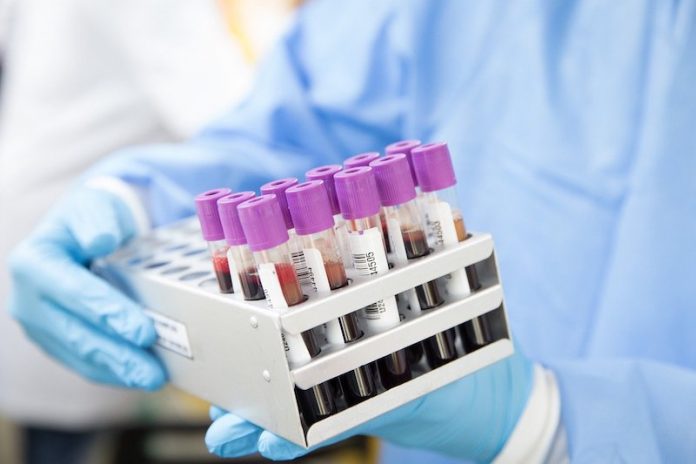
In a new study, researchers found six molecules that can be used as biomarkers to predict how severely ill a patient will become.
The research was conducted by a team from the Lawson Health Research Institute and Western University.
The new study was done by analyzing blood samples from critically ill patients.
It builds on a growing body of work from the team who were first in the world to profile the body’s immune response to the virus by revealing a separate six molecules that could act as potential targets to treat hyper inflammation in critically ill patients.
With no proven therapies, many COVID-19 patients admitted to intensive care units (ICUs) do not survive.
When a patient is admitted to ICU, doctors normally wait to see if they are going to get worse before we consider any risky interventions.
To improve outcomes, researchers not only need new therapies but also a way to predict prognosis or which patients are going to get worse.
In the study, the researchers identified six molecules of importance (CLM-1, IL12RB1, CD83, FAM3B, IGFR1R and OPTC).
They found that these molecules were elevated in COVID-19 patients who would become even more severely ill.
They found that when measured on a COVID-19 patient’s first day of ICU admission, the molecules could be used to predict which patients will survive following standard ICU treatment.
The team measured 1,161 plasma proteins from the blood of 30 participants: 10 COVID-19 patients and 10 patients with other infections admitted to LHSC’s ICU, as well as 10 healthy control participants.
Blood was drawn on set days of ICU admission, processed in a lab and then analyzed using statistical methods and artificial intelligence.
The team notes that predicting a patient’s disease severity can help in a number of ways.
It could allow for medical teams to have important conversations with family members, setting goals of care based on the patient’s health and personal wishes.
Medical teams could use the knowledge to mobilize resources more quickly. If they know a patient is at a higher risk of death, they may consider intervening sooner despite associated risks.
The team also hopes the findings can be used to better design COVID-19 clinical trials by grouping patients based on their risk.
This could allow for stronger results when examining potential treatments for the disease.
One author of the study is Dr. Douglas Fraser.
The study is published in Critical Care Explorations.
Copyright © 2020 Knowridge Science Report. All rights reserved.



